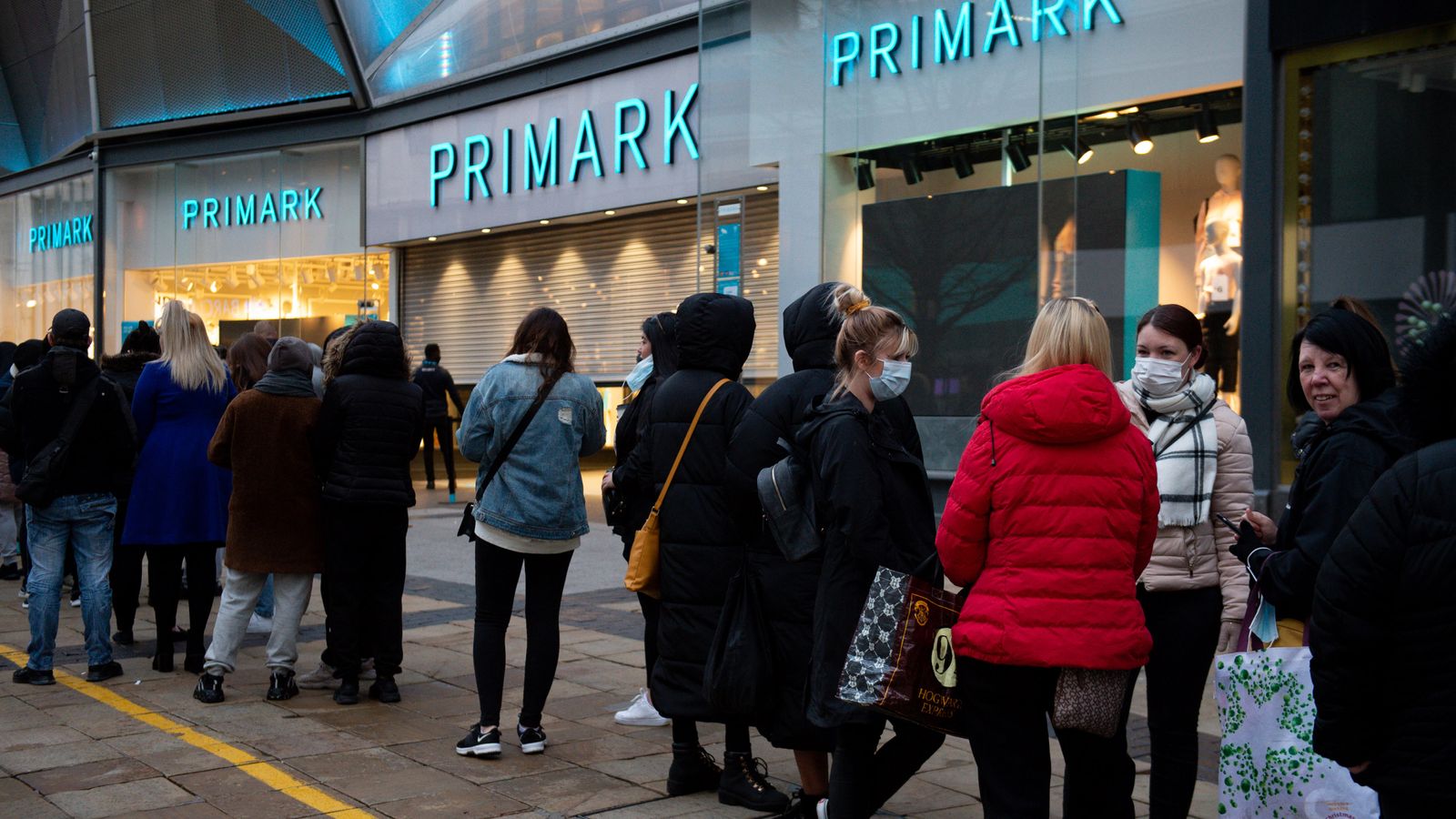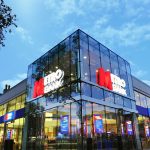Primark’s owner said the fashion retailer set new sales records after stores reopened and shoppers started to “step out of lockdown leisurewear”.
The brand – which does not have an online sales presence – enjoyed a 3% like-for-like increase on pre-pandemic revenues for the weeks since the reopening, helped by popular items such as blazers.
Shoppers were pictured queuing outside Primark stores as COVID restrictions were eased in April in England and Wales, helping it set new weekly sales records.
The reopening saw a “resurgence in demand for fashion across womenswear and menswear, as customers start to step out of lockdown leisurewear,” the brand’s owner Associated British Foods (ABF) said in a trading update.
Customers flocked to buy popular items such as pink gingham and purple blazers which were marketed online and sold out within weeks, it revealed.
The update comes hours after US retailer Gap became the latest victim of the crisis engulfing high streets as it announced the closure of all 81 of its physical stores in the UK and Ireland.
But Primark’s owner said the return of so many shoppers in person to its stores with each post-lockdown reopening showed the “relevance and appeal” of its cut-price offering.
It said while Primark’s like-for-like growth only reflected a few weeks of trading, including pent-up demand after reopening, it was “significantly better than the performances after reopenings earlier in the pandemic”.
More customers were coming into stores and putting more in their baskets, the company said, though this trend had partly ebbed since the initial peak.
ABF said Primark notched up revenues of £1.6bn in the 16-week period from 28 February to 19 June compared to £0.6bn a year ago when the first lockdown was in place.
The strong performance reflected “an increase in both confidence and willingness to spend by our customers”, it said.
ABF said after the reopening of stores Primark increased its market share compared to 2019 levels even when online sales were included.
Primark’s sales for the quarter saw “very strong increases” on two years ago in the UK, Republic of Ireland, France and Italy and were “marginally ahead” in the US, the group said.
ABF has previously disclosed that it expected to lose more than £1bn in sales due to lockdowns.
Shares in the group – a sprawling conglomerate which also includes household name brands such as Ryvita and Twinings as well as a global sugar business – surged by nearly 5% on the latest update.
Susannah Streeter, senior investment and markets analyst at Hargreaves Lansdown, said: ”The Gap-sized hole in the high street which will be left when the US retailer closes its final stores at the end of September will be hard to fill, given the big names which have already left bricks and mortar shops behind.
“But Primark, one of the big fashion chains left standing, its likely to clean up from Gap’s exodus, attracting browsing shoppers whose options are dwindling.
“It is still turning heads on the high street, while one by one other fashion retailers fall by the wayside.”






















